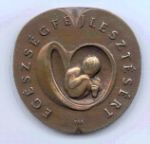6. Mathematics and fostering talent (HU, AT, PT)
Introduction
The level of mathematics education is high in our countries (Hungary, Austria, Portugal), with an overcrowded curriculum in many cases. Because of the set amount of materials and the low number of lessons lower primary teachers have only a little time left for talent care and for differentiated development. This is extremely important for the socially disadvantaged, talented children, as their opportunities can be promoted by proper treatment. Later forms of talent care like contests or tasks to be sent to different journals are at the disposal of lower primary children to a lesser extent. The task of the lower primary teacher would be to raise and keep the interest of 1st and 2nd graders for mathematics, and then from grade 3 to direct this interest at contests and task-solving, in those cases especially where the family does not do it. This way we could arrive at the result that not only those children access the different forms of extracurricular talent care who are already interested and determined concerning mathematics but those children as well who do not feel obliged to it because of their disadvantaged position.
It is an important point that not necessarily the child who fulfils mathematical tasks quickly and without mistakes at school is talented in mathematics. Lower primary teachers should be prepared for those abilities (organising, combinative) and features in thinking (divergent, convergent, inverse) that are the signals of talent. Accordingly we should ensure the experience of success on some fields for all children who are interested (for example there are children whose space perception is more developed, and there are ones who are more skilled in combinatorial or logic tasks). It is easy to mix speed with talent, especially in case of lower primary children where reading and writing can also cause problems; several examples prove that a slow person can also be very talented.
According to our opinion lower primary teachers can have the possibility to fulfil talent care at school. Group work of children and prepared task sheets would help a lot to reach this aim. We would like to prepare lower primary teacher trainees for these methods and for the development of such kind of task sheets. Our aim was not to teach some new exercises or theorems, but develop the problem solving ability, critical and creative thinking of future teachers, and as a result their pupils’, by doing some activities. We think that it is very important to be able to find mathematical problems in the environment of pupils which are interesting and motivating for them. Task sheets are organised not according to the mathematical content only. Tasks are attached to everyday life and topics of interest for the pupils. One task sheet processes one topic.
We summarize our point of view in “Guiding Principles”, and speak about the teacher’s work with pupils in primary school in “Mathematics and Fostering Talent”. We show the mathematical background of some conjuring tricks (1.), and how we can create mathematical problems from the adventures of Harry Potter (10.). The activities about ancient counting and number systems (2. 3. 4.) help to deepen the understanding of the concept of number and operations, and the rules of divisibility. The activities: Calendar (5.), Gold on a scale (6.), Chess board (11.) and Sports (12.) are in close relation in their themes to real life or tales and games, at the same time with combinatorics and number theory. The activities on geometry (7. 8. 9) give some possibilities for manipulative activities, some of them may be done with computer.
We hope that after this course future teachers will be able to construct similar activities for their pupils in primary school.
CONTENTS
1. Guiding Principle and Training Methodology
2. Mathematics and Fostering Talent
3. Activities
4. Conjuring tricks
5. Ancient counting
6. Number systems
7. Planet Five
8. Calendar
9. Gold on a scale
10. Geometrical dissection of polygons
11. Regular polyhedra
12. Triangles tetrahedrons and sequences
13. The secret of Harry Potter
14. Chess board
15. Sports
